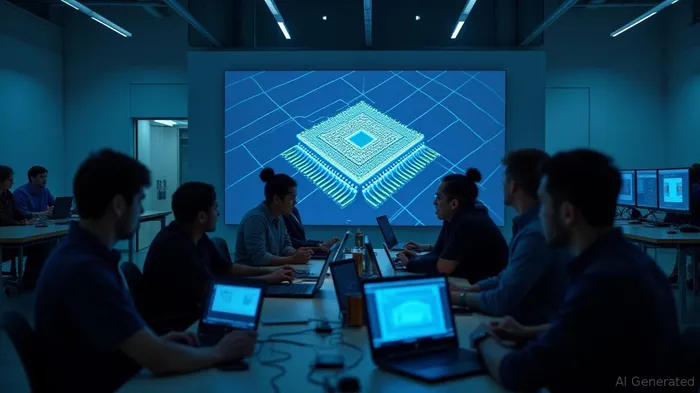Apple Explores Generative AI for Faster Chip Design
Apple Inc. is reportedly exploring the use of generative artificial intelligence to expedite the design of its custom chips, a move that could significantly enhance the speed and efficiency of its chip development process. This strategic initiative was highlighted by Johny Srouji, Apple’s senior vice president of hardware technologies, during a speech at the ITF World Conference last month. Srouji emphasized the importance of utilizing the most advanced tools available to design chips, noting that electronic design automation (EDA) companies play a crucial role in supporting the complexities of chip design.
Srouji’s comments suggest that AppleAAPL-- is looking to leverage generative AI techniques to reduce the time required for design work and boost productivity. This aligns with the broader industry trend, as two of the largest EDA firms, Cadence Design SystemsCDNS-- and SynopsysSNPS--, have also been integrating AI into their offerings. The potential benefits of generative AI in chip design include automated layout generation and improved power efficiency, which could streamline the design process and enable the development of more complex and efficient chips in less time.
Apple’s approach to chip design has been marked by bold decisions and a commitment to innovation. The company’s transition of Mac computers from Intel’s chips to its own Apple Silicon in 2020 is a testament to this strategy. This transition, which involved a significant risk with no contingency plans, reflects Apple’s confidence in its engineering capabilities and strategic vision. By embracing generative AI, Apple aims to further enhance its custom chip designs, ensuring that its devices continue to deliver superior performance and innovation.
Apple has been using AI in its designs for years, and it has relied on third-party EDA companies that leverage AI and machine learning in chip design. Synopsys, one of the leading EDA firms, has stated that generative AI could create new ways to design chips, which Apple relies on. This collaboration with third-party companies underscores Apple’s commitment to staying at the forefront of technology by adopting the latest advancements in AI and chip design.
The integration of generative AI into chip design could revolutionize the process, offering advantages such as automated layout generation and improved power efficiency. This technology has the potential to streamline the design process, allowing for more complex and efficient chips to be developed in less time. Apple’s focus on using the most advanced tools and techniques underscores its commitment to maintaining its leadership position in the tech industry. By embracing generative AI, Apple aims to further enhance its custom chip designs, ensuring that its devices continue to deliver superior performance and innovation.

Quickly understand the history and background of various well-known coins
Latest Articles
Stay ahead of the market.
Get curated U.S. market news, insights and key dates delivered to your inbox.

Comments
No comments yet